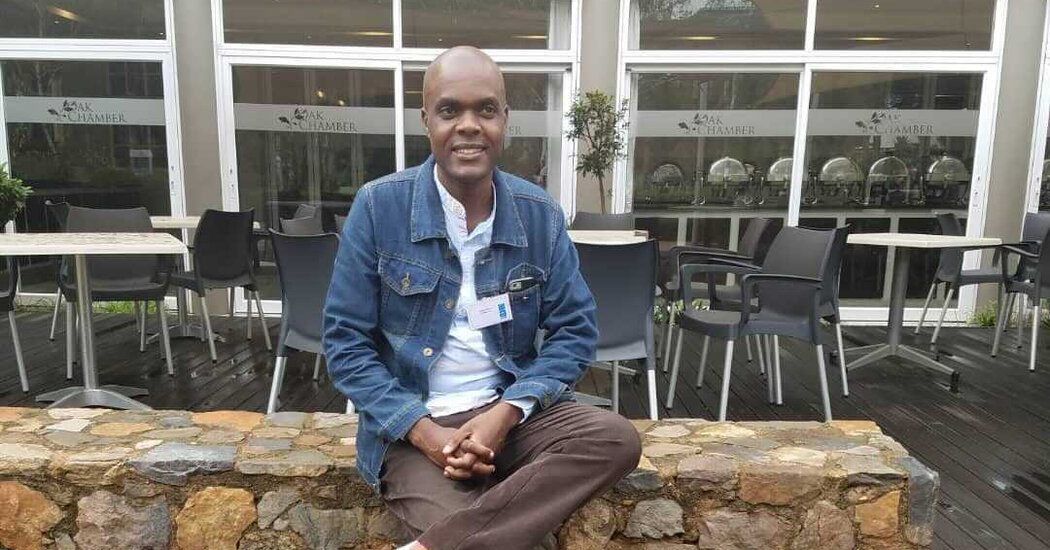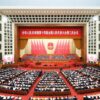The reporter, Jeffrey Moyo, has been accused of helping two Times journalists enter Zimbabwe from South Africa using bogus credentials, a charge that even the government admits is on ‘shaky grounds.’
A freelance reporter working for The New York Times in Zimbabwe faces trial this week on accusations that he helped two other journalists for the news organization illegally enter the country last year, a charge that even the government acknowledged at one point to be practically baseless.
The case against the reporter, Jeffrey Moyo, 37, has attracted both domestic and international attention, as evidence of increased harassment and intimidation of the media in Zimbabwe, the landlocked southern African country of 14 million.
Mr. Moyo was scheduled to appear Tuesday before a judge in the southwestern city of Bulawayo for the trial, which was expected to last for four days or possibly longer. He was initially arrested on May 26, then jailed and was granted bail after three weeks.
The Times, press-freedom advocacy groups and Mr. Moyo’s lawyer, Doug Coltart, have all said Mr. Moyo has been wrongly accused and that he should not face trial. At the bail appeal hearing in June that secured his release from Bulawayo’s overcrowded prison, the government conceded that its case was on “shaky grounds,” court papers show.
“We do consider the charges to be baseless and not only that, but the state has effectively said as much as well,” Mr. Coltart said. “This is a clear-cut case and we believe that we can show that Jeff is innocent of any wrongdoing and we hope that he will be acquitted.”
The authorities in Zimbabwe have not commented on the prosecution.
Officials have said Mr. Moyo procured what they described as phony accreditation documents for Christina Goldbaum and João Silva, Times journalists who flew from South Africa to Bulawayo on May 5 for a reporting trip. Both Ms. Goldbaum and Mr. Silva were ordered expelled four days later.
Zimbabwe prosecutors also have accused an official of the Zimbabwe Media Commission, Thabang Manhika, with having provided the documents to Mr. Moyo, who gave them to Ms. Goldbaum and Mr. Silva upon their arrival.
The prosecutors have provided no evidence so far to back their contention that the documents were fake, Mr. Coltart said. Moreover, the lawyer said, Mr. Moyo has provided the police with receipts that show he obtained the documents legally and that Mr. Moyo believed he had been “dealing with a bona fide ZMC official who is authorized to accredit journalists.”
Mr. Coltart said he would be seeking to separate the prosecution of his client from that of Mr. Manhika.
The decision to proceed with the case against Mr. Moyo, Mr. Coltart said, was “not surprising given that there have been some very public attacks on the independence of the judiciary under the government.”
Perhaps the most notable of these attacks have been directed at an award-winning investigative journalist and activist, Hopewell Chin’ono, who was prosecuted in 2020 on charges he had supported banned demonstrations on social media. A court in Harare, the capital, dropped the case in December, which Mr. Chin’ono described as an admission it had been trumped up from the start.
Some Zimbabwean journalists have privately expressed fears that the prosecution of Mr. Moyo was unnerving partly because of his reputation as a highly professional freelancer who has no political agenda. If it can happen to him, they argue, it can happen to anyone.
Dean Baquet, the executive editor of The New York Times, said in a statement: “We are deeply troubled by the prosecution of Jeffrey Moyo, which appears designed to chill press freedom in Zimbabwe. Jeffrey is a widely respected journalist with many years of reporting experience in Zimbabwe.”
The Committee to Protect Journalists, an advocacy group based in New York, has been outspoken in its criticism of Zimbabwe over Mr. Moyo’s prosecution, particularly since the government acknowledged the weaknesses in the case six months ago. If prosecutors do not drop the case, said Angela Quintal, the group’s Africa program coordinator, that “would simply reinforce perceptions that prosecutors are acting in bad faith and are using Moyo as an example to censor and intimidate the press in Zimbabwe.”
Mr. Moyo, who has a wife and young son, has described the prosecution as an ordeal, requiring numerous trips between Bulawayo and Harare, his home base, 270 miles away.
“I hope this case just ends,” he said. “I long for my freedom. I want to work peacefully.”




























